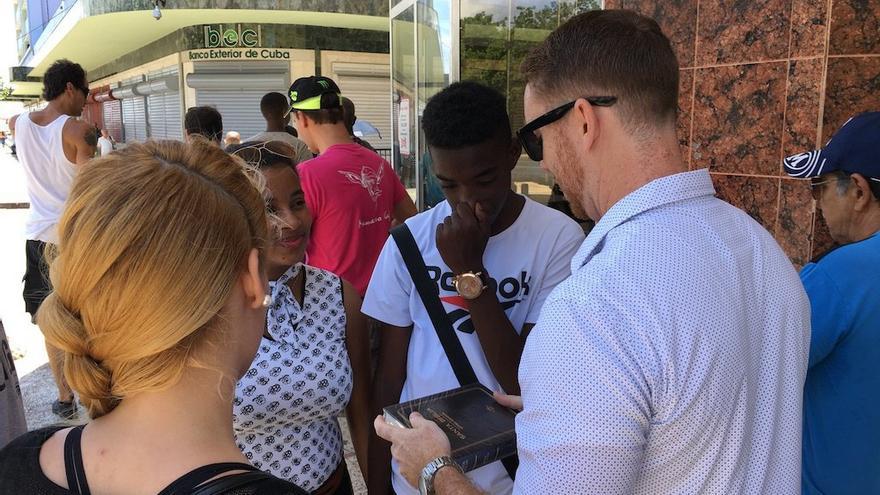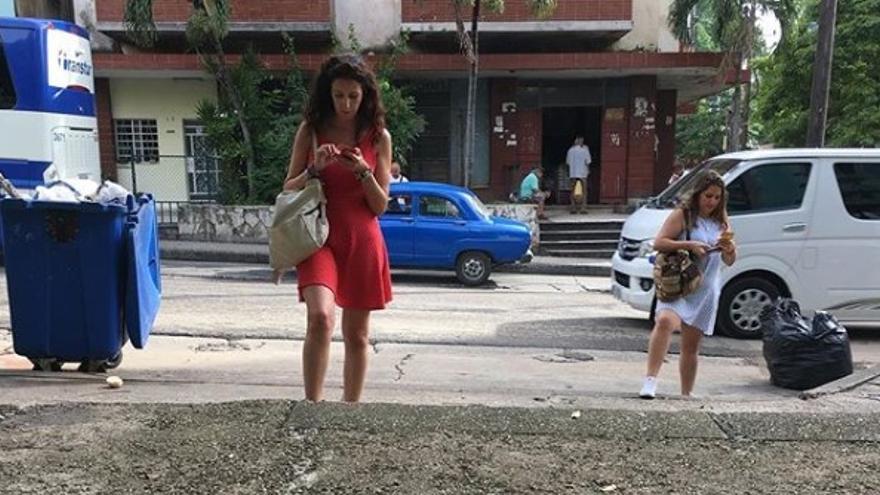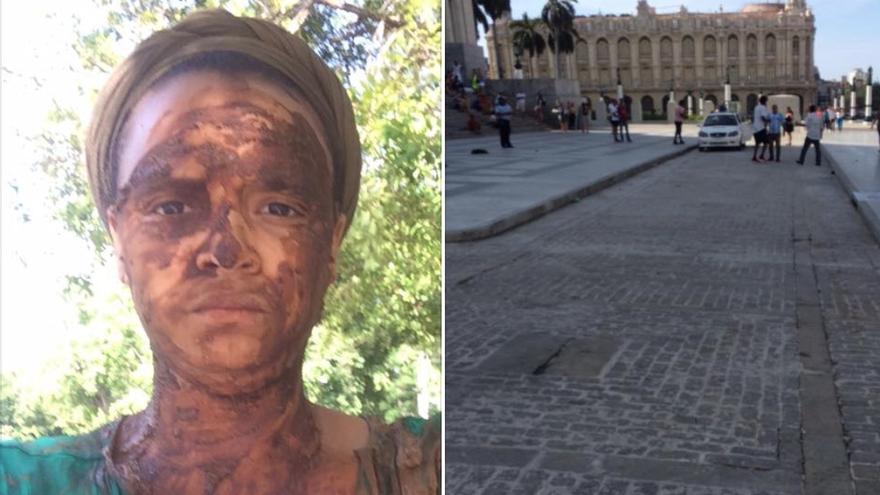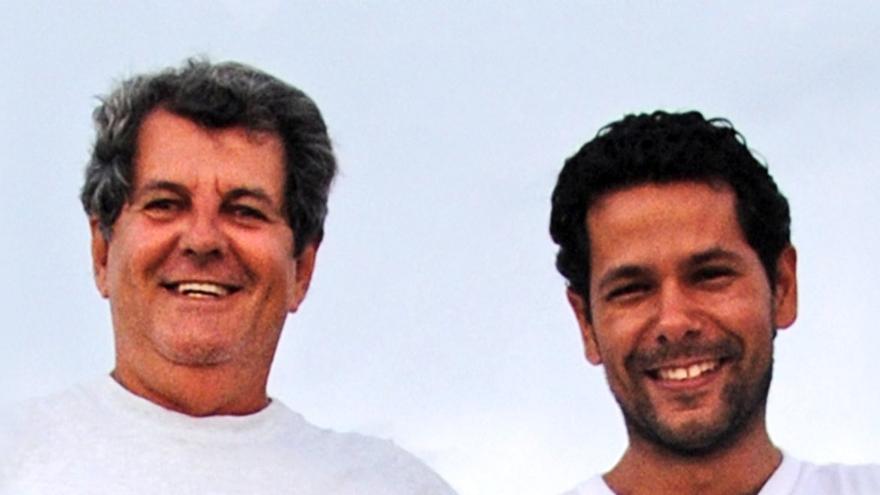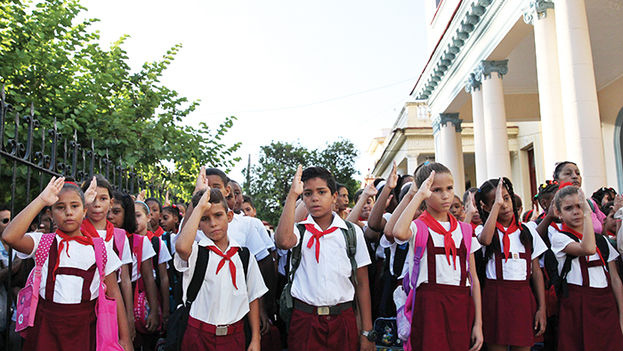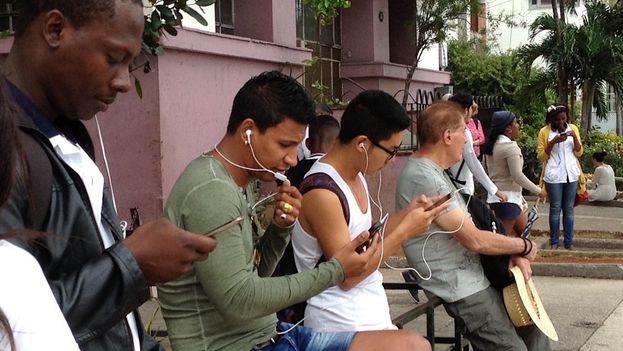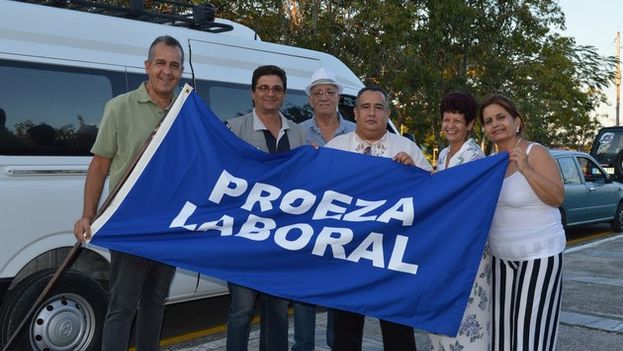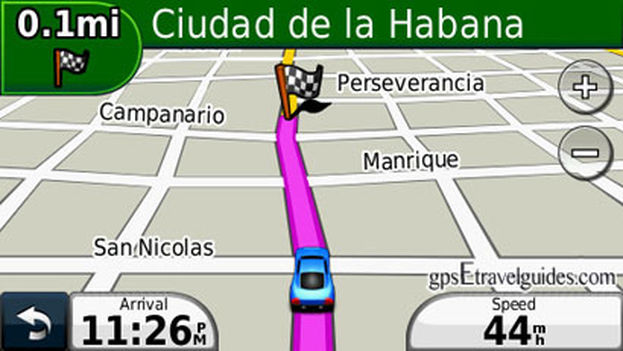
![]() 14ymedio, Reinaldo Escobar, Havana, 26 July 2018 — The two hotels have the same name but have had very different destinies. The Hotel Rex in Santiago de Cuba, where some of the protagonists of the assault on the Moncada barracks stayed, can boast of three stars. The ruins of what was once the Hotel Rex in Havana, on the other hand, at number 64 San Miguel Street, are home to several families who live with the fear of an imminent collapse or eviction.
14ymedio, Reinaldo Escobar, Havana, 26 July 2018 — The two hotels have the same name but have had very different destinies. The Hotel Rex in Santiago de Cuba, where some of the protagonists of the assault on the Moncada barracks stayed, can boast of three stars. The ruins of what was once the Hotel Rex in Havana, on the other hand, at number 64 San Miguel Street, are home to several families who live with the fear of an imminent collapse or eviction.
The deterioration of this four-story building with its formerly beautiful Art Deco facade adorned with balconies has had different stages. The worst came to pass in the late 80s, when it stopped being an inn that was rented by the hour for love affairs and became a shelter to accommodate families who had lost their homes due to building collapses, fires or because the buildings they previously lived in had simply deteriorated to the point where they were declared uninhabitable. continue reading
Each of the small rooms with bathroom, suitable for the shelter two lovers for a couple of hours of passion, welcomed large families who installed kitchens, laundry rooms and ‘subdivisions’ made from whatever material was available. Everyone believed that their stay would be for a limited time and under the logic of provisionality exploited their spaces without mercy.
Finally, the stigma of uninhabitability fell on the Rex and its inhabitants were relocated. However, despite the unfortunate state in which negligence left the building, it remained a space with a roof and this, more than a minimum, was a luxury for the most needy, willing to do anything to obtain and maintain housing in the capital of the Republic.
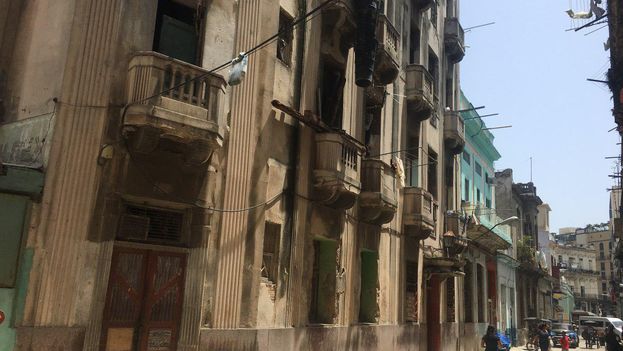
They come from all the provinces — hustlers, workers joining the “heroic construction contingents,” policemen to persecute criminals, and thugs to evade the police– with every square meter of surface disputed every day, along with every stretch of cable through which the electricity circulates, and each pipe through which the water flows.
The network of procedures required to obtain a permit to live in this lion’s den includes the recognition of ‘exceptional circumstances’ that legitimizes some cases and, although it is difficult to prove, many of the previous procedures that resulted in the authorization to live there bear the unmistakable stench of corruption.
Yudiris Caridad Cintras, from the municipality of Antilla, in Holguín, had to escape with her three children from the house where she was mistreated for more than 7 years by her husband, an ex-cop who was never convicted of any of the numerous complaints she filed for threats and abuse.
This took place in May 2017, when she was 30 years old, and led her to qualify for the category of a “social case,” for which she receives economic aid of 300 Cuban pesos (roughly $12 US): 135 to pay for meals, and 165 for two of her children who do not receive maintenance from the father.
The delegate for this district of the municipality of Centro Habana, Ramón César García, alias El Yardo, was assigned the task of housing her and he placed her in a room on the second floor of the Rex that did not even have a toilet. For months she had to relieve herself in bags. Some neighbors sympathized with Yudiris and helped her move to the third floor, where there was a room with better conditions. They improvised a door for her and there she settled with what she could pick up off the street. Now she sleeps on the floor with her children, after burning old mattresses infected with bedbugs.
Currently, relations between Yudiris and the delegate are very difficult. According to her, this representative of the People’s Power, also a former cop, “has in his house the control of the water pump that supplies that liquid, subject to his own pleasure.” She hasn’t forgotten the occasion when she went to complain that she had been without water for days.” He mistreated me verbally and physically in the presence of my children, I had the youngest of the children in my arms when he knocked me to the ground by punching me in the face.” In addition, Yuridis denounces that he is accusing her of being a “human rights” person or a member of the Ladies in White, in order to isolate her.
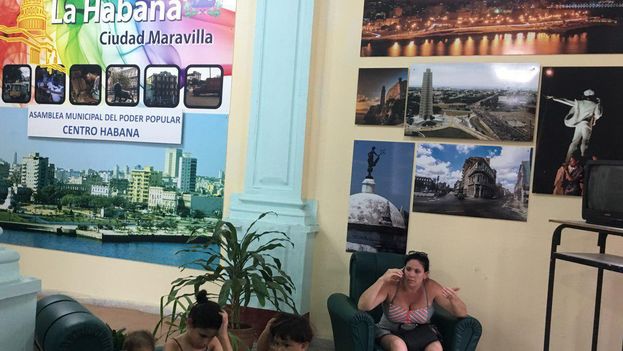
As recounted by Yudiris herself, and as 14ymedio was able to verify, also living in the Rex are around a dozen police friends of the delegate, who support him unconditionally in gratitude for the authorizations he has provided them without legal grounds. “I’m surrounded,” says the woman with a mixture of humor and anguish
Yudiris has gone to every government agency to raise complaints. In each office she tells her whole story and each one adds the new steps to her ordeal.
Her case is now known to the Ombudsman Office of the Council of State, in the military prosecutor’s office, the provincial prosecutor’s office, the provincial Committee of the Party, the Federation of Cuban Women, and the Municipal Assembly of Centro Habana. “I have been promised mattresses and a kitchen but the only thing I have achieved is that they allow me to have one of my children in a Children’s Circle.”
Yudiris de la Caridad is just one of the many cases caught between the quarrels and shared solidarity in this lodging that has become a pigsty. The human birds of prey among the ruins dehumanize some and make others better, but they are all victims equally, even the victimizers.
This Thursday July 26, in the revelry of the celebrations for the attack on the Moncada Barracks so many years ago, some of the veterans of that “historical feat” will remember the hours they spent at the Rex Hotel in Santiago de Cuba, maybe they will visit it and admire the good state in which everything is preserved. Probably none of them knows about the Havana Rex, nor do they need to.
______________________________
The 14ymedio team is committed to serious journalism that reflects the reality of deep Cuba. Thank you for joining us on this long road. We invite you to continue supporting us, but this time by becoming a member of 14ymedio. Together we can continue to transform journalism in Cuba.


